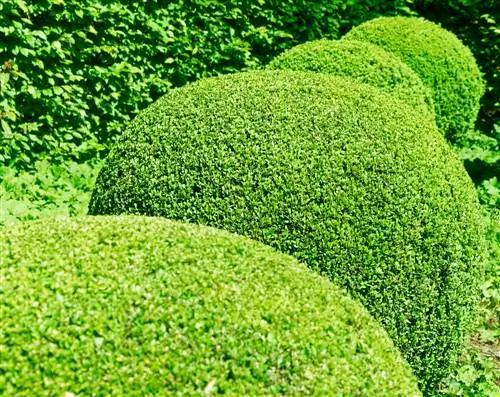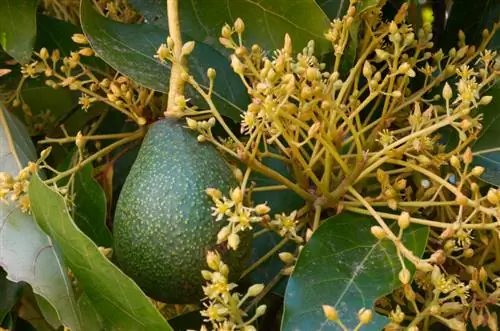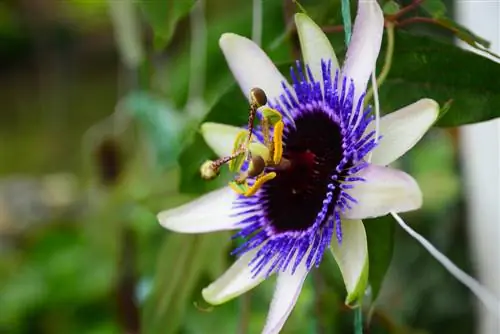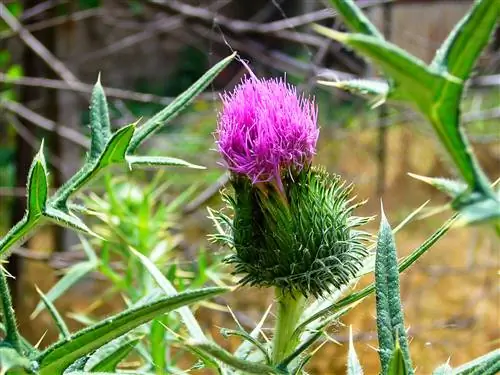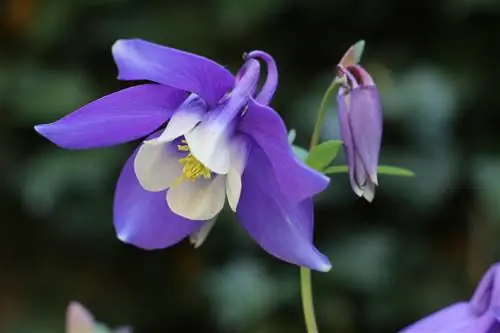- Author admin leonars@hobbygardeners.com.
- Public 2023-12-16 16:46.
- Last modified 2025-01-23 11:22.
Masters of European garden design unabashedly pay respect to the boxwood, despite attacks by boxwood borers and shoot dieback. Boxwood friends advocate not giving up the evergreen tree without a fight. This guide takes a questioning look at the horticultural and cultural significance of boxwood.
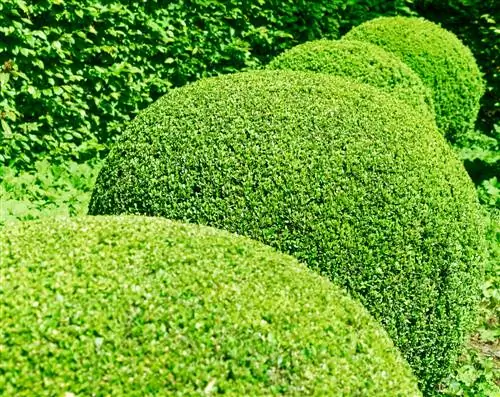
What is the meaning of the boxwood?
The boxwood is important in garden design, culture and as a medicinal plant. It serves as an ornamental and commercial tree, symbolizes protection and spirituality and, despite its poisonous nature, is occasionally used in homeopathy.
What significance does the boxwood have in garden design?
Evergreen boxwood (Buxus sempervirens) is an importantornamental and commercial tree in Germany with these possible uses in the garden:
- Garden design: bed edging in the rose and cottage garden, privacy hedge that can be cut,
- Garden art: Topiary trees for pots and beds as a representative sculpture or geometric figure.
- Cultivation as a commercial tree: processing extremely hard boxwood into woodwind instruments, violins, chess pieces, kitchen utensils, artistic woodcuts and wooden sculptures.
What cultural significance does the boxwood have?
The cultural significance of boxwood is based primarily onsacralandspiritual symbolism People of the Catholic faith decorate crosses and altars on Palm Sunday consecrated boxwood branches. Priests use boxwood bushes as holy water fronds. More and more Christians are decorating a boxwood tree instead of a Christmas tree.
As a spiritual symbol, boxwood stands for protection against evil spirits. You can plant boxwood at the entrance to the house to protect the residents from nasty witches and dangerous lightning and hail.
What significance does boxwood have as a medicinal plant?
As a medicinal plant, boxwood is ofof secondary importance because the tree is poisonous. In ancient times, boxwood was given for coughs, rheumatism, and stomach and intestinal diseases. Nowadays the poisonous plant is occasionally used in homeopathy.
More than 70 toxic alkaloids are contained in Buxus sempervirens, making dosage a risky undertaking. Even a slight overdose of boxwood as a medicinal plant causes severe nausea, excruciating vomiting and can be fatal.
Tip
Boxwood was already important in the Stone Age
Did you know that the boxwood was already important 170,000 years ago? The Neanderthals created burial sticks from fire-hardened boxwood, as evidenced by finds in the Italian province of Grosetto. The appreciation of unsurpassed hard boxwood continued from ancient times to the modern day. The origin of the Latin genus name Buxus is derived from the ancient Greek word Pýxos for boxwood.

